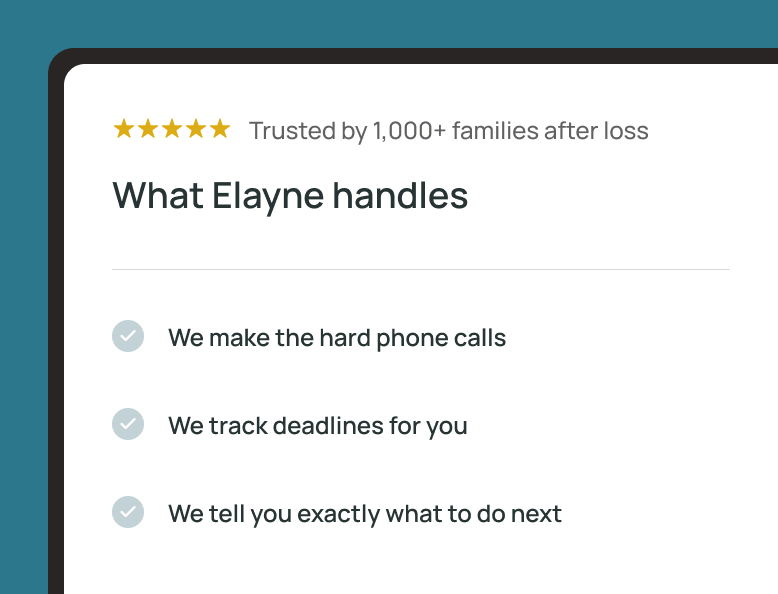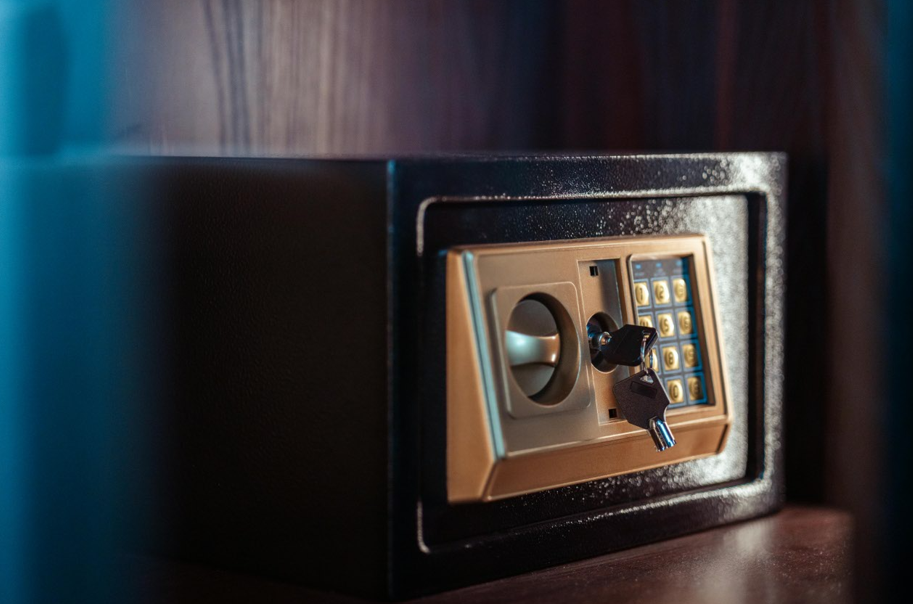Key Takeaways
- The executor of a will is responsible for managing the estate and carrying out the deceased’s final wishes.
- Duties include gathering assets, paying debts, filing paperwork, and distributing inheritances.
- Having the right documents and a clear executor of a will checklist helps avoid legal and emotional complications.
{{blog-cta-checklist-small}}
What the Executor Role Actually Means
If you’ve been named the executor of a will, you’re the point person for settling the estate, legally and practically. That includes navigating probate, protecting property, paying legitimate bills and taxes, and making sure beneficiaries receive what the will promises.
Think of it as equal parts project manager and fiduciary. You’ll coordinate with family members, courts, banks, and sometimes attorneys or accountants. If you’re just stepping in and need a quick runway, this overview of what to do immediately after a loved one dies is a helpful starting point.
Core Responsibilities of an Executor
While every estate is different, most executors will:
- Locate and file the will with the probate court (and get official authority to act)
- Inventory assets: bank/investment accounts, real estate, vehicles, personal items, and increasingly, digital assets
- Notify key parties: banks, life insurers, employers, and agencies like the SSA. If you’re unsure where to begin with agencies, see how to contact Social Security after a death.
- Pay valid debts and final expenses: medical bills, loans, utilities, and funeral costs.
- Handle taxes: file the decedent’s final income tax return and any estate returns; this walkthrough on how to notify the IRS of a death helps you line up the right forms
- Distribute inheritances: according to the will, then close the estate
For a broader overview of the estate settlement process, this guide can be a helpful resource.
Day-to-Day Tasks
On a typical week, you’ll be managing timelines, paperwork, and updates to the family:
- Tracking court deadlines and required notices
- Communicating clearly with beneficiaries to manage expectations
- Keeping meticulous records (receipts, statements, appraisals)
- Protecting property, maintaining insurance, and paying the mortgage
- If they arise, addressing disputes
In terms of timelines, our guide on closing an estate has additional information.
Your First-Week Checklist
When you’re ready, these early steps can help create a solid foundation:
- Order certified death certificates (you’ll need several for banks/insurers)
- Find the original will and confirm that you’re named the executor
- File the will with probate court to receive formal authority
- Secure property and valuables (home, vehicles, documents, passwords)
- Gather key records (bank/investment statements, deeds, titles, insurance policies)
- Open a dedicated estate bank account for all inflows/outflows
- Notify beneficiaries about the process and next steps
If you’d like to use a template, Elayne’s after-death checklist helps keep everything organized and on track.
Money Management: Paying Debts and Taxes
There are two places that executors often lose time, which are paying the wrong bills (or in the wrong order) and missing tax items. Some areas to be aware of:
- Debts & Claims: watch for medical bills, utilities, and credit balances. If letters from collectors start arriving, this piece can be helpful to reference.
- Banks & Cards: a key task is closing or retitling accounts.
- Taxes: beyond the final 1040, estates may need additional filings. If you’re unsure where to begin, see this walkthrough on taxes after someone dies.
Getting Beneficiaries Paid Accurately and on Time
Once debts, expenses, and taxes are handled, you’ll distribute what remains according to the will. This explainer on how an executor pays beneficiaries covers timing, documentation, and best practices for final receipts and releases.
Also, executors can be compensated. The specifics vary by state and what the will says, but here’s a general guide to executor pay.
Working with the Court (and When to Bring In Counsel)
Not every estate needs heavy court involvement, but all estates benefit from clarity. If you’re curious about who appears in court and when, this primer on who reads a will after death demystifies the early legal steps. For more complex estates, having the support of an attorney is incredibly important.
Elayne’s tools can help with coordinating legal and administrative steps. They’re designed to simplify the process of tracking documents, contacts, and due dates.
Important Guardrails for Executors
- You have a fiduciary duty: always act in the estate’s best interest
- You can be personally liable for mishandled funds or missed court rules, so be sure to document everything
- You can decline the role if it’s too much; the court can appoint an alternate
- You’re typically allowed reasonable compensation (per statute or the will)
- You can always get help: attorneys, CPAs, and platforms like Elayne exist to make this manageable
{{blog-cta-checklist-large}}
FAQs
Q: What is the main duty of an executor?
To follow probate law, manage the estate, and carry out the will’s instructions.
Q: Can a beneficiary be the executor of a will?
Yes. It’s common for spouses, adult children, or close relatives to be both the executor and a beneficiary.
Q: Does the executor of the will get anything?
Executors may receive compensation. It can be a fee that’s either set by state law or stated in the will.
Q: What is the first thing an executor of a will should do?
Obtain the death certificate and locate the original will to begin the probate process.
Serving as the executor of a will is a serious responsibility, and one of the most meaningful ways to honor someone’s final wishes. With a clear checklist and the right estate documents, you can navigate the process with greater confidence. And if there’s ever something you’re unsure about, it’s best to seek legal advice or professional guidance.
For assistance with the administrative side of estate settlement, our team’s always available and ready to help.
*Disclaimer: This article is for informational purposes only and does not provide legal, medical, financial, or tax advice. Please consult with a licensed professional to address your specific situation.















































